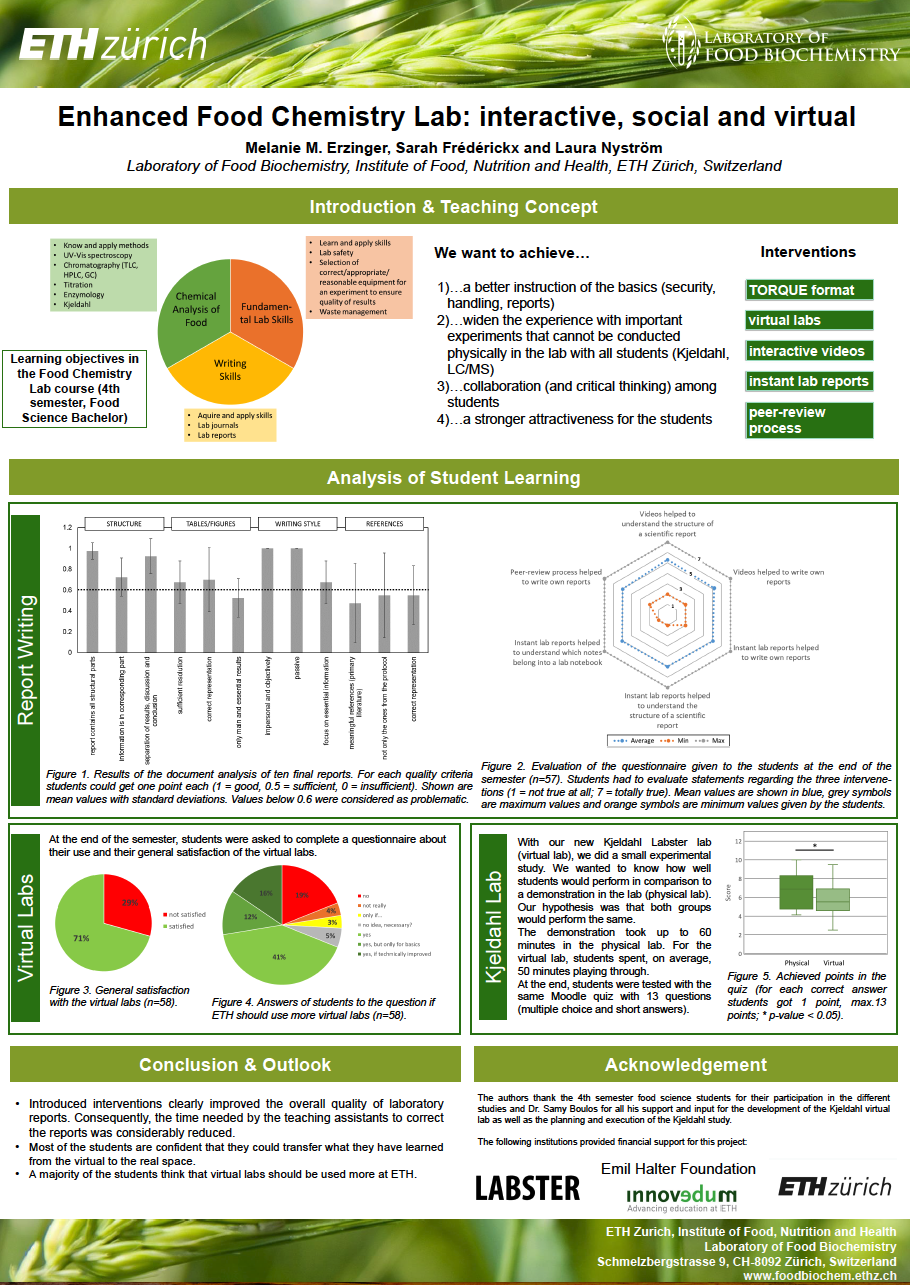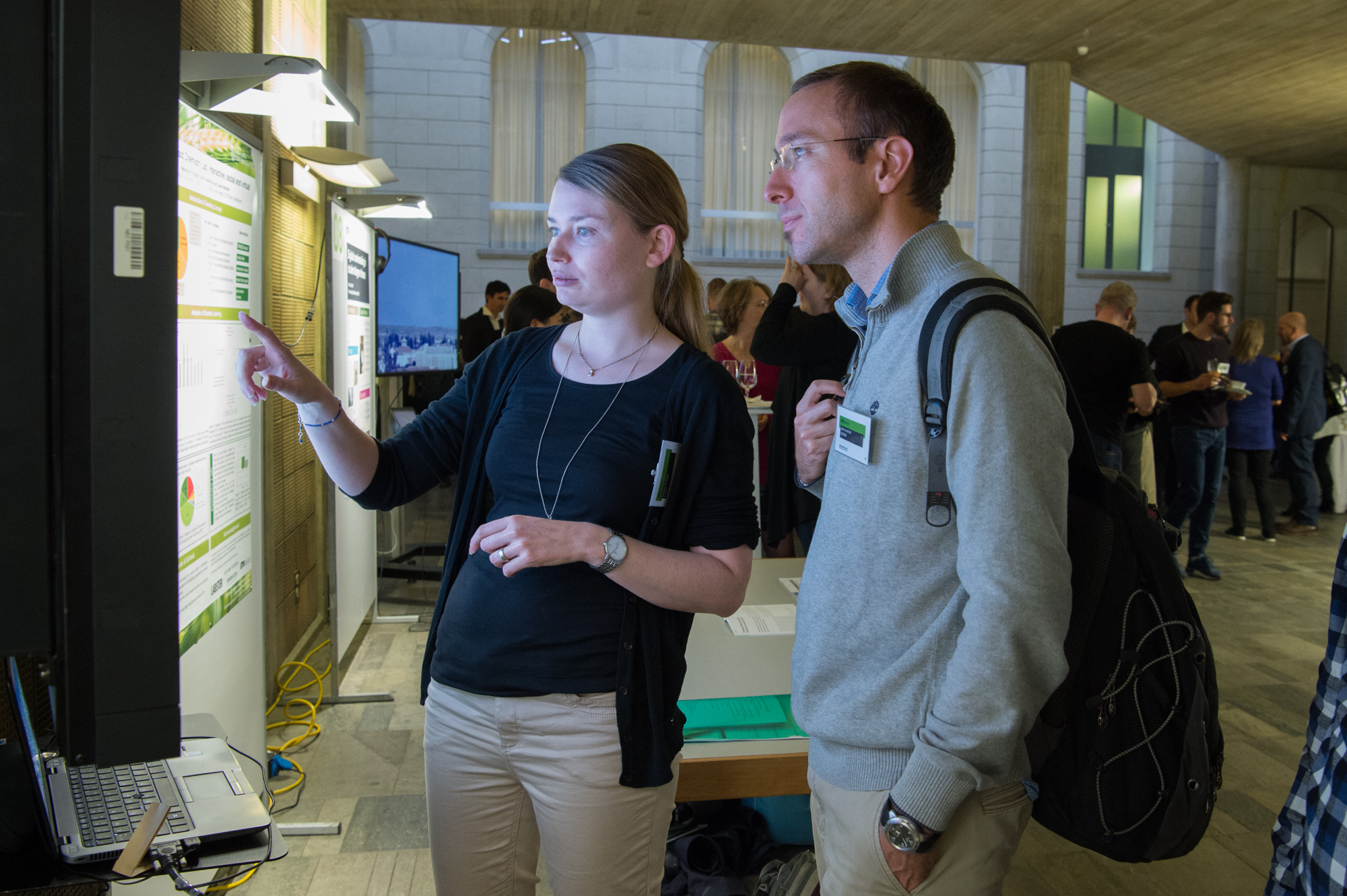Enhanced Food Chemistry Lab: Interactive, social and virtual
Booth #09

Improving general lab skills as well as report writing skills during the food chemistry lab course by using interactive videos, lab simulations as well as a peer-review tasks for students.
Authors
Dr Melanie M. Erzinger, D-HEST, Institute of Food, Nutrition, and Health
Sarah Frédérickx, D-HEST, Educational Developer
Prof. Dr Laura Nyström, D-HEST, Institute of Food, Nutrition, and Health
Abstract
There are some fundamental skills that students should thoroughly acquire from the very beginning of their studies of working in the laboratory, such as lab safety, selection of reasonable equipment for an experiment to ensure quality of results, waste man-agement, writing reports, drawing graphs and tables, etc. According to our experience in the Laboratory Course in Food Chemistry, the time in the introductory lecture is not sufficient. Because of the setting, important information and concepts are only men-tioned once. To facilitate the learning and adaptation process and make it more active, we decided to offer the students interactive study material for independent studying before and during the laboratory work. With the interactive videos, virtual laboratories and peer review tasks, the students actively study and prepare for the laboratory courses already before the contact hours and test their skills to evaluate the learning process. This allows for the time during the contact hours to be more efficiently used for the substance knowledge and skills. The virtual laboratories allow the students to perform experiments virtually that are not possible in the real world due to security, time and/or money concerns. With these interventions we hope to increase the overall satisfaction on both sides, for students as well as for assistants and lecturers.To investigate the effects of our teaching project on improvement of the report writing skills, a document analysis of ten final reports was done. Additionally, students were asked to complete a questionnaire to evaluate the importance of the individual inter-ventions for their own report writing. To get a more detailed insight, six students were personally interviewed. Students were also asked to complete a Moodle questionnaire about their satisfaction with all virtual laboratories, and lastly, with our new Kjeldahl Labster lab (virtual lab), a small experimental study was performed.
Results of our investigations showed that the introduced interventions clearly improved the overall quality of laboratory reports. Consequently, the time needed by the teaching assistants to correct the reports was considerably reduced. The virtual laboratories were generally well accepted by the students and most of them are confident that they could transfer what they have learned from the virtual to the real space. A majority of the students think that virtual labs should be used more at ETH.
